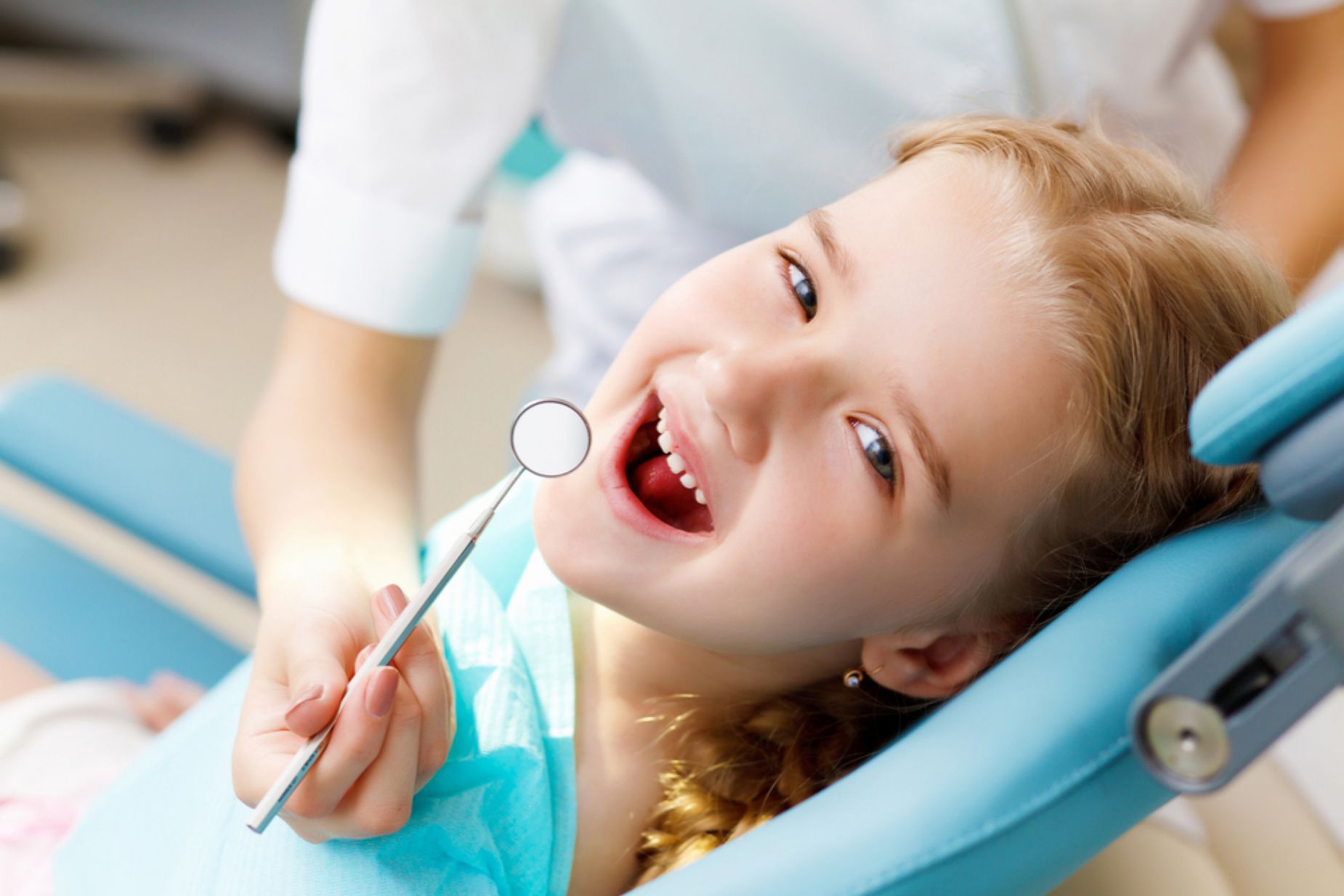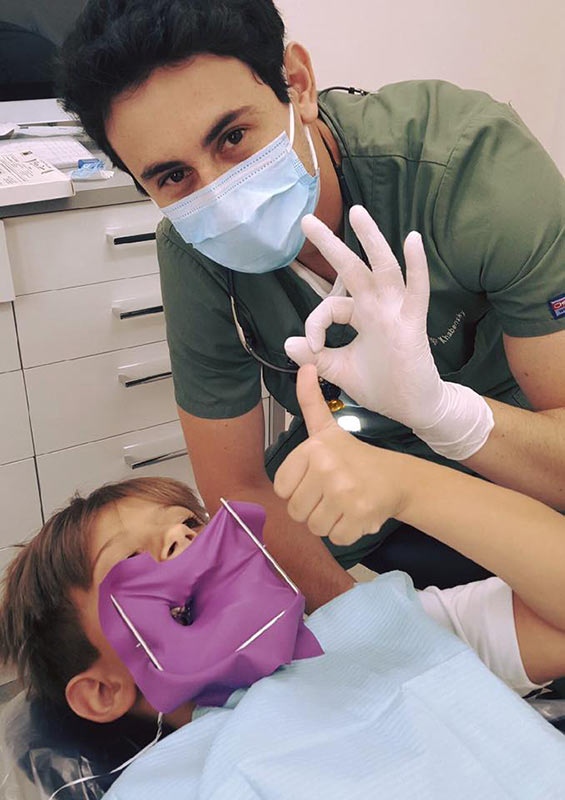Children Dentist Specializing in Enjoyable and Friendly Visits
Children Dentist Specializing in Enjoyable and Friendly Visits
Blog Article
How Pediatric Dentistry Addresses One-of-a-kind Dental Requirements and Challenges Dealt With by Growing Kids
Pediatric dental care is a customized area that responds and identifies to the distinctive oral requirements of youngsters as they grow. This technique not just minimizes prompt oral challenges but additionally lays the foundation for lasting oral health and wellness.
Importance of Very Early Oral Sees
Very early oral gos to are critical for establishing a structure of good oral health and wellness in kids. The American Academy of Pediatric Dental care recommends that a kid's first oral browse through take place by their initial birthday celebration or within 6 months of the eruption of their initial tooth. These very early visits serve multiple objectives, consisting of informing moms and dads regarding proper oral health techniques, nutritional options, and the relevance of routine dental treatment.
Throughout these sees, pediatric dental practitioners evaluate the child's oral wellness, keep track of the growth of teeth, and identify possible problems such as misalignment or decay. Early treatment can stop much more major problems in the future, making certain that kids establish healthy and balanced dental routines and decreasing anxiety surrounding dental visits.
In addition, developing a connection with a pediatric dental practitioner fosters a feeling of convenience and trust, making future visits less challenging. The dental expert can give tailored recommendations that lines up with the youngster's developmental stage, encouraging moms and dads to make informed decisions concerning their kid's oral wellness. Generally, early oral visits play an essential function in advertising long-lasting oral health, making them a vital element of pediatric healthcare.
Usual Dental Issues in Kid
Comprehending common dental issues in kids is essential for promoting their dental health and wellness and well-being. Youngsters face one-of-a-kind dental obstacles because of their creating teeth and changing oral atmospheres. Among one of the most widespread problems are tooth cavities, often arising from poor oral hygiene techniques and high sugar consumption. Early detection and treatment are critical to prevent additional difficulties.
An additional substantial concern is malocclusion, which refers to misalignment of teeth. This can lead to troubles in chewing, speech issues, and boosted risk of dental trauma. Pediatric dental experts commonly advise orthodontic assessments to deal with these worries as kids expand.
Furthermore, oral injury is typical in active children, especially because of sports and play. Injuries can vary from broken teeth to complete avulsion, requiring prompt analysis and therapy to preserve oral integrity.
Methods for Managing Dental Anxiety
Dental anxiety is a common concern among kids, often originating from unknown environments and concern of discomfort - pediatric dentistry oakland. Managing this stress and anxiety effectively is vital to ensure that kids obtain required dental care without unnecessary stress and anxiety. Pediatric dental experts use several techniques to minimize stress and anxiety and produce a more comfortable experience
First, making use of an inviting, child-friendly workplace atmosphere can considerably decrease anxiety. Vibrant decorations, playthings, and friendly team assistance create a sense of safety and security and experience. Furthermore, effective interaction is vital; pediatric dental professionals usually describe treatments in easy, non-threatening terms to aid demystify the procedure.
Diversion strategies, such as supplying earphones with music or Full Article enabling children to view video clips throughout treatment, can also divert interest from possible pain. Moreover, behavioral administration approaches, consisting of positive support, urge collaboration by applauding kids completely behavior.

Role of Preventive Treatment
Preventive treatment plays a vital function in pediatric dental care, concentrating on keeping oral wellness and preventing prospective concerns before they develop. By applying a positive strategy, pediatric dental professionals intend to enlighten both children and their caregivers regarding the relevance of oral hygiene and routine dental brows through. This education includes direction on appropriate cleaning and flossing methods, along with the significance of a balanced diet in promoting oral health and wellness.
Regular dental examinations are necessary for very early discovery of tooth cavities, misalignment, and other dental health concerns. During these gos to, pediatric dental experts can use fluoride therapies to strengthen enamel and provide oral sealers to safeguard against degeneration in susceptible areas of the teeth. In addition, these examinations serve as a possibility for dental practitioners to keep an eye on the advancement of a kid's teeth and jaws, making certain that any kind of abnormalities are addressed immediately.
Furthermore, pediatric dental practitioners typically assess kids's habits such as thumb-sucking or long term pacifier use, which might affect dental positioning. By addressing these routines early, preventative treatment not only fosters a healthy smile yet also instills lifelong dental wellness techniques in children, setting the foundation for a lifetime of great dental health.

Transitioning to Adolescent Dentistry
As children develop and expand, their oral needs evolve, leading to distinctive factors to consider in adolescent dental care. This shift marks a crucial duration where the mouth undergoes substantial modifications, whitening consisting of the eruption of long-term teeth and the potential beginning of orthodontic concerns. Teenagers frequently experience raised independence, which can influence their oral health techniques and dietary selections, necessitating tailored instructional approaches.
Throughout this stage, dental specialists focus on precautionary treatment and very early intervention techniques. Normal check-ups become essential for checking the development of teeth and jaw alignment, determining problems such as tooth cavities, gum tissue condition, and malocclusion. Adolescents also require support on handling dental wellness obstacles linked with hormone adjustments, such as raised susceptibility to gingivitis.
Moreover, the psychosocial aspects of oral treatment are critical; oral anxiousness might come to a head during adolescence, making it important for specialists to employ effective interaction methods to ease concerns. By promoting a positive oral experience, specialists can encourage long-lasting dental health habits. Transitioning to teenage dentistry is not just a shift in treatment methods but a comprehensive approach to sustain the distinct developing and mental needs of expanding individuals.
Conclusion
To conclude, pediatric dentistry plays a vital role in attending to the distinct oral requirements of youngsters with early treatment, effective monitoring of common oral issues, and the application of preventive care approaches. By creating a helpful setting and using techniques to ease anxiety, pediatric dental practitioners foster favorable dental experiences that urge lifelong dental health practices. The shift recommended you read to teen dentistry additionally guarantees that the developing dental requirements of growing individuals are consulted with specific care and experience.
Pediatric dental care is a customized area that responds and recognizes to the distinct oral demands of youngsters as they grow (pediatric dentistry oakland). The American Academy of Pediatric Dentistry recommends that a child's initial oral see happen by their very first birthday or within 6 months of the eruption of their very first tooth. By implementing a proactive approach, pediatric dental practitioners aim to educate both youngsters and their caregivers concerning the value of oral health and regular oral check outs.Additionally, the psychosocial aspects of oral care are crucial; oral anxiety may come to a head during teenage years, making it important for experts to employ efficient interaction techniques to alleviate anxieties.In conclusion, pediatric dentistry plays a vital duty in dealing with the unique oral demands of children with very early treatment, effective administration of common dental problems, and the application of preventive treatment approaches
Report this page